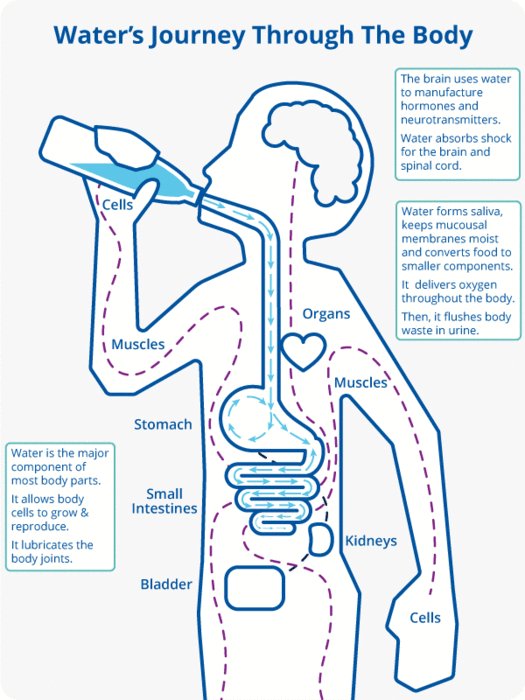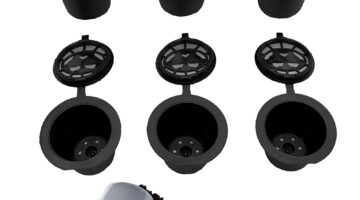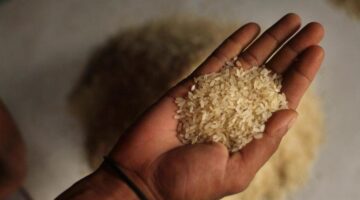
How Long Does It Take For Water To Turn To Pee: Explained
“How long does it take for water to turn to pee? The answer lies in the complex journey our body puts water through once it’s consumed. From the moment water enters your system, it begins a fascinating transformation process. Our kidneys work tirelessly to filter out waste and excess water, converting it into urine. The time taken for this journey varies depending on several factors, but generally, water can be transformed into pee within a couple of hours. Let’s delve deeper into this intriguing process.”
How Long Does It Take for Water to Turn to Pee?
Welcome, curious minds! Have you ever wondered how long it takes for the water you drink to eventually become the pee you release? It’s a fascinating journey inside our bodies that involves various organs and processes. Let’s dive in and explore the answer to the intriguing question: How long does it take for water to turn to pee?
The Journey Begins: Drinking Water
It all starts with a simple act – drinking water. When you take a sip of water, it travels down your throat and into your stomach. From there, the water is absorbed into your bloodstream through the walls of your intestines. This process happens quite quickly, usually within minutes of drinking water.
Once in the bloodstream, the water is carried to every cell in your body, providing essential hydration for proper functioning. But not all the water you drink stays in your body; some of it is filtered out as waste.
Filtering Process: Kidneys at Work
Your kidneys play a vital role in filtering out waste and excess water from your bloodstream. The kidneys are like the body’s filtration system, constantly working to maintain the right balance of water and nutrients in your body.
As the water reaches your kidneys, they start the process of filtering out waste and excess water to create urine. This process involves complex mechanisms that help regulate your body’s water levels and remove toxins and byproducts from your bloodstream.
Urine Formation
Urine is primarily made up of water, but it also contains various waste products that need to be removed from your body. The kidneys filter the water and waste products, which then travel through the ureters to the bladder, where urine is stored until you’re ready to pee.
It’s important to note that the time it takes for water to turn into pee can vary depending on several factors, such as your hydration levels, kidney function, and overall health.
The Final Destination: Time to Pee!
Once your bladder is full and you get the signal from your brain that it’s time to pee, you head to the bathroom to release the urine. The act of peeing is controlled by a muscle called the sphincter, which opens to allow urine to flow out of your body.
As you pee, the water that you drank earlier has now been processed by your body and turned into urine. The color and odor of your pee can also give you clues about your hydration levels and overall health.
Factors Affecting the Process
Several factors can influence how long it takes for water to turn into pee. For example, if you’re well-hydrated, your kidneys may produce more urine, leading to more frequent trips to the bathroom. On the other hand, if you’re dehydrated, your body may hold on to more water, resulting in darker and more concentrated urine.
Other factors, such as age, diet, and medical conditions, can also impact the urine formation process. It’s essential to listen to your body and stay hydrated to ensure that your kidneys can function properly and eliminate waste efficiently.
So, to answer the burning question – how long does it take for water to turn to pee? The journey from drinking water to peeing it out can take anywhere from a few minutes to a few hours, depending on various factors. Our bodies are incredibly efficient at processing water and eliminating waste, thanks to the intricate systems in place, such as the kidneys and bladder.
Next time you take a sip of water, remember the incredible journey it takes inside your body before eventually becoming the pee you release. Stay hydrated, listen to your body, and marvel at the wonders of the human anatomy!
Thank you for joining this exploration of the water-to-pee journey. Cheers to staying hydrated and keeping our bodies happy and healthy!
How Are Water And Other Fluids Digested In The Human Body?
Frequently Asked Questions
How long does it generally take for water to be converted into urine in the body?
Once water is consumed, it typically takes about 30 minutes to 2 hours for it to be filtered by the kidneys and for the excess water to be excreted as urine. The actual time can vary depending on individual factors like hydration levels, metabolism, and overall health.
What factors can affect the speed at which water is turned into urine?
Several factors can influence the rate at which water is converted into urine, including the amount of water consumed, individual hydration levels, kidney function, and any underlying health conditions. Additionally, factors like temperature, physical activity, and medication intake can also impact the process.
Is there a specific timeframe within which water must be converted into urine?
There is no specific timeframe within which water must be turned into urine as the body continuously regulates hydration levels based on various factors. However, maintaining a regular intake of fluids throughout the day is essential to support proper kidney function and overall health.
Final Thoughts
Water typically takes about 20-30 minutes to reach the bladder after drinking. Once in the bladder, it can take anywhere from 30 minutes to 2 hours to turn into urine. So, overall, the process of water turning into pee can take around 1-3 hours. While the exact timing varies depending on factors like hydration levels and individual metabolism, understanding how long it takes for water to turn to pee can offer insights into our bodies’ natural processes.




